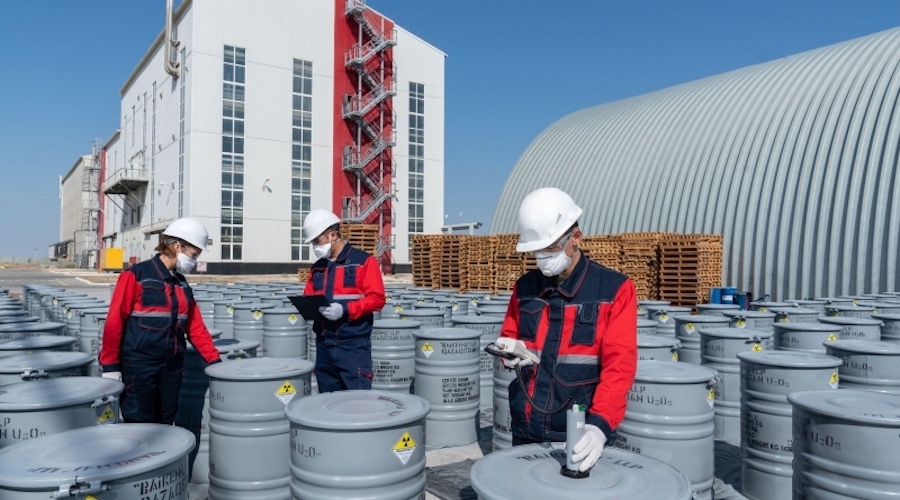Blair McBride - The Northern Miner | January 2, 2025

State-run Kazatomprom operates 26 deposits grouped into 14 asset clusters, all of which are located in Kazakhstan. (Image courtesy of Kazatomprom.)
Cameco’s (TSX: CCO; NYSE: CCJ) Inkai joint venture project in Kazakhstan has suspended uranium production because of a bureaucratic holdup, the Canadian producer said Thursday.

The in-situ recovery JV, in which Cameco holds a 40% stake and state-owned Kazatomprom (LSE: KAP) holds 60%, didn’t get an extension to submit its project paperwork because of a delayed submission to Kazakhstan’s energy ministry.
The extension was expected to come through last year, and as recently as Dec. 26 reports hadn’t indicated that production might be suspended, Cameco said in a release.
The Saskatoon-based company’s shares gained 1.8% to C$75.28 apiece on Thursday morning in Toronto, for a market capitalization of C$32.7 billion ($2.2 billion). Its shares traded in a 52-week range of C$48.71 to C$88.18.
Shares in Kazatomprom fell 2.1% to $36.95 apiece in London, giving it a market cap of £7.8 million ($9.6 million).
Production increase questions
The Inkai suspension adds more uncertainty to Kazakhstan’s near-term uranium production ramp up, BMO Capital Markets analyst Alexander Pearce wrote in a note on Thursday.
Kazatomprom’s announcement suggests the paperwork approvals should be resolved shortly, Pearce said. Meantime the spot uranium price could rise if Cameco and Kazatomprom have to purchase supplies to meet sales commitments, he said.
“The company highlighted that documentation is expected to be submitted in the next couple of weeks, but it is not clear on a timeline for the approvals process and commencement of operations,” Pearce said.
Still, Kazatomprom doesn’t expect any significant impact on its production forecast this year of 65-68.9 million tonnes of uranium oxide (U3O8), Pearce said. BMO puts the same forecast at 65.6 million tonnes of U3O8.
As the largest uranium operation in the Central Asian country, Inkai’s output should total 9.3 million lb. this year, representing 14% of Kazakhstan’s production and 16% for Cameco, BMO forecasts.
Raymond James analyst Brian MacArthur wrote that the timing of Cameco’s roughly 4 million lb. of U3O8 annual output from Inkai can vary since shipments use the TransCaspian International Transport Route, outside of Russian rail lines and ports.
“The timing of these deliveries, in turn, can impact the timing/amount of dividends (Cameco) receives from JV Inkai,” he said.
The uranium spot price was at $73 per lb. as of Dec. 31, down 5.8% from $77.13 at the end of November, and down 27.5% from the energy metal’s 17-year high of $100.25 one year ago, according to Trading Economics.
No comments:
Post a Comment